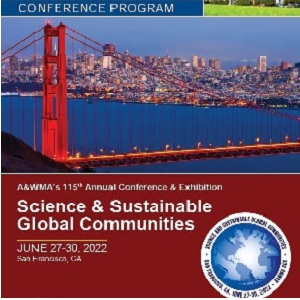Back
Platform
GOVS
Session : Changing Requirements Affecting Government Facilities
1171393 - Climate Change Reporting and Planning Changes at Government Facilities
Wednesday, June 29, 2022
1:30pm – 1:50pm PT
Location: Marina
- RW
Roger L. Wayson, PhD
Senior Environmental Engineer
AECOM
Cottonwood Shores, TX
Primary Author(s)
New overall guidance and requirements related to climate change planning and processes at government facilities are altering the way we “do business.” Many Federal agencies were in the process of planning facility strategies based on Executive Orders 13514, Federal Leadership in Environmental, Energy, and Economic Performance and 13693, Strengthening Federal Environmental, Energy, and Transportation Management, which have both been revoked. There is still a requirement to manage short and long-term effects of climate change on the agency's mission and operations as part of the formal Strategic Sustainability Performance Planning process, but how this impact management will occur is evolving. In January 2021, the President issued Executive Order 14008, “Tackling the Climate Crisis at Home and Abroad,” which ordered a whole-of-government approach to combating climate change. As a result, at least 23 Federal agencies have released new climate strategies to reduce threats from global warming to operations and facilities. Planning is critical to use existing resources carefully and to prevent unnecessary future use of resources due to impacts from climate change. For example, the Department of Veterans Affairs has estimated that more than $2 billion in emergency funding will be needed every 7-10 years to replace or repair facilities damaged by major hurricanes and other storms. Careful planning should help to reduce these costs.
To accomplish the needed planning, while following appropriate guidelines, agencies are formulating how to improve “climate literacy” among their employees. The Department of Homeland Security has said it would develop an education plan for its workforce, while the United States (U.S.) Office of Personnel Management (OPM) is looking for more opportunities to embed climate adaptation and resiliency training into its professional and leadership development curricula for employees and executives. OPM is also working with the White House Council on Environmental Quality to develop a new program, known as the Sustainability Executives Program. This program would bring climate experts from the private sector, non-profit sector and academia into federal agencies to help them “solve complex problems related to the climate crisis.”
This paper evaluates some of the key anticipated changes to planning processes that are underway or could occur with suggestions for immediate changes that could be implemented.
To accomplish the needed planning, while following appropriate guidelines, agencies are formulating how to improve “climate literacy” among their employees. The Department of Homeland Security has said it would develop an education plan for its workforce, while the United States (U.S.) Office of Personnel Management (OPM) is looking for more opportunities to embed climate adaptation and resiliency training into its professional and leadership development curricula for employees and executives. OPM is also working with the White House Council on Environmental Quality to develop a new program, known as the Sustainability Executives Program. This program would bring climate experts from the private sector, non-profit sector and academia into federal agencies to help them “solve complex problems related to the climate crisis.”
This paper evaluates some of the key anticipated changes to planning processes that are underway or could occur with suggestions for immediate changes that could be implemented.

.jpg)
